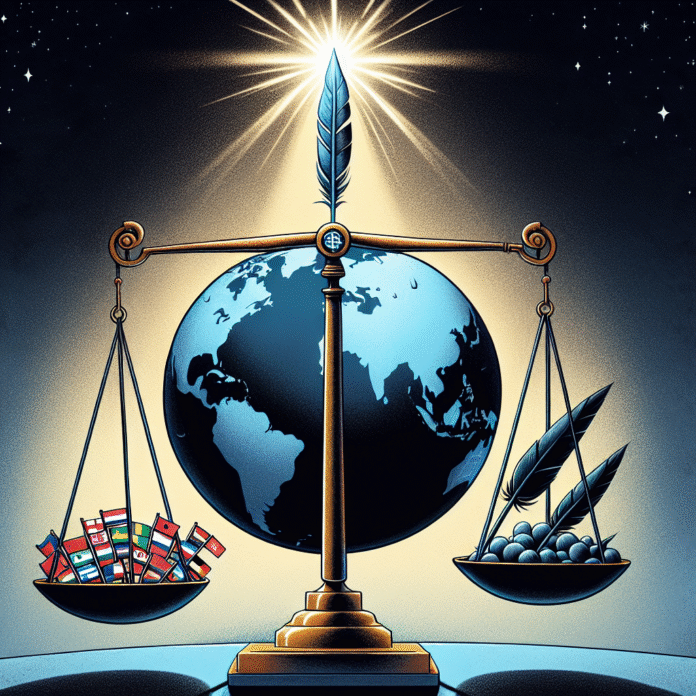Introduction
In recent years, the world has witnessed a troubling resurgence of authoritarianism, leading to significant challenges for the promotion and protection of human rights. Countries that once seemed to be advancing toward democracy are finding their political systems under threat from increasingly oppressive regimes. This article explores the global responses to authoritarianism, examining both the strategies employed by various nations and the implications for human rights around the world.
The Rise of Authoritarianism
Authoritarianism has made a comeback across various regions, with leaders consolidating power, suppressing dissent, and undermining democratic institutions. Nations such as Russia, China, and Turkey have exemplified this trend, using state machinery to stifle opposition and control public opinion. According to Freedom House’s "Freedom in the World" report, the global decline in political rights and civil liberties has reached its lowest point in over a decade.
Factors Contributing to Authoritarianism
Several factors contribute to the rise of authoritarian regimes, including:
-
Economic Instability: Economic crises can exacerbate social tensions, allowing authoritarian leaders to gain support through promises of stability.
-
Social Media and Misinformation: While social media can empower dissent, it can also be manipulated to spread misinformation, allowing authoritarian regimes to control narratives.
-
Geopolitical Dynamics: Authoritarian governments often find allies in other non-democratic states, undermining international pressures for human rights improvements.
Global Responses
Multilateral Organizations
Organizations like the United Nations (UN) and the African Union (AU) have sought to confront authoritarianism through diplomatic channels and resolutions:
-
UN Human Rights Council: The council has initiated inquiries into human rights abuses in countries like Myanmar and Belarus. However, its efficacy is often hampered by geopolitical interests and a lack of enforcement mechanisms.
-
AU Initiatives: The AU emphasizes respecting constitutional order and promoting democracy. Although these efforts have met resistance in several member states, they serve as a framework for advocating human rights.
Sanctions and Trade Policies
Economic sanctions have become a popular tool for governments seeking to hold authoritarian regimes accountable. The European Union and the United States have imposed sanctions on individuals and entities in countries like Venezuela and Russia. While such measures can pressure governments, they often inadvertently harm the very populations they aim to protect.
Human Rights Advocacy
Human rights organizations play a crucial role in documenting abuses and mobilizing support for affected populations:
-
Amnesty International and Human Rights Watch have been at the forefront of raising awareness and advocating for sanctions against authoritarian regimes.
-
Grassroots movements are increasingly important, using digital platforms to organize protests and campaigns that challenge state oppression.
Coalition Building
A growing number of democracies are forming coalitions to collectively respond to authoritarianism. Initiatives like the Summit for Democracy, spearheaded by the Biden Administration, aim to unite countries in promoting democratic values and holding authoritarian regimes accountable.
Challenges Ahead
Coordination and Cohesion
One significant barrier to an effective global response is the lack of coordination among democracies. Nations often prioritize national interests over collective action, undermining efforts to confront authoritarianism.
The Risk of Backlash
Efforts to promote human rights in authoritarian contexts can lead to backlash against activists and dissenters. Regimes often retaliate harshly to perceived foreign interference, making it crucial for the global community to support local voices safely.
Balancing Interests
Governments must navigate a delicate balance between enforcing sanctions and engaging in diplomacy. Striking this balance is essential to ensure that actions do not worsen humanitarian situations or escalate conflicts.
Conclusion
The fight against authoritarianism and for human rights is far from over. As countries grapple with the complexities of resisting oppressive regimes, a multifaceted approach—encompassing diplomatic, economic, and grassroots efforts—will be crucial. While the path ahead is fraught with challenges, the collective commitment to safeguarding human rights remains a vital force for global progress. Only through unity and unwavering resolve can we hope to tip the scales back toward democracy and justice.






